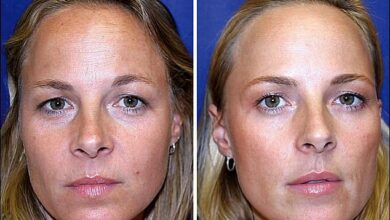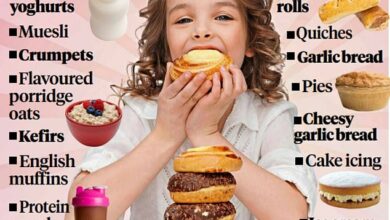Shock over ‘healthy’ products now classed as junk food in ultra-strict new government guidelines
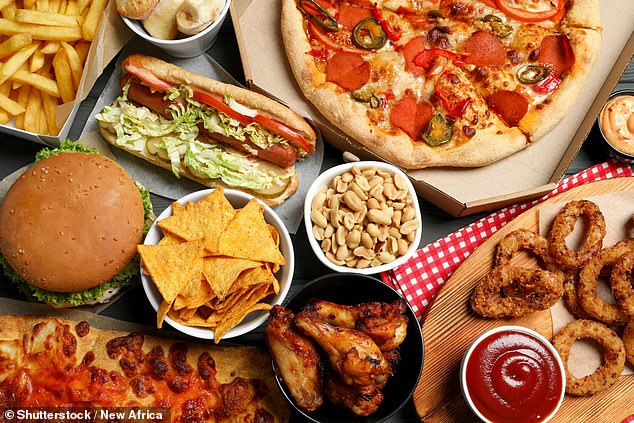
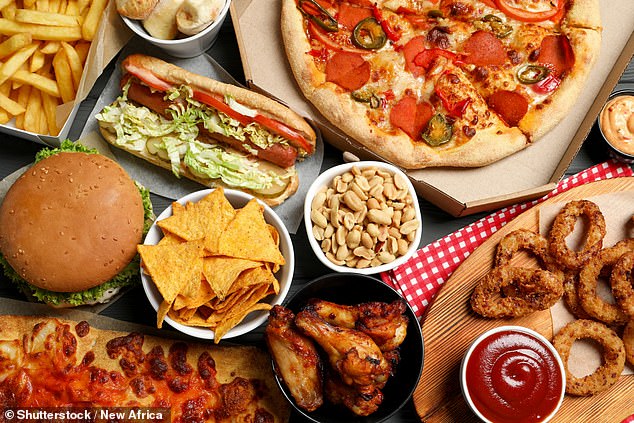
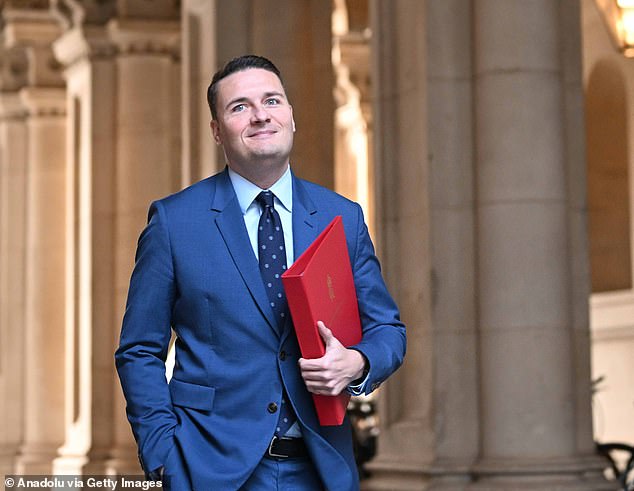
Diet experts today slammed the government’s new ultra-strict ban on junk food advertising – claiming the updated rules target foods that are in fact healthy.
Ministers will today introduce legislation to restrict adverts broadcast on television before 9pm, and entirely online, which is expected to cost businesses around £199 million a year.
The policy aims to reduce children’s exposure to foods high in fat, sugar or salt, such as cakes, biscuits, ready meals and chips.
Still, the ban, which has yet to be unveiled in detail by the government, is believed to include staples considered healthy by experts, including oatmeal porridge, crackers and even rice cakes.
Granola, muesli and frozen yogurt are other foods officials are targeting.
But Professor Gunter Kuhnle, an expert in nutrition and food science at the University of Reading, branded the proposals as ‘not helpful’.
He added: ‘Some of these foods are probably very healthy, for example porridge or some sugar-free breakfast cereals.’
Dietitian Dr Carrie Ruxton also argued this sends ‘the wrong message’ and warned the Government to avoid ‘throwing the baby out with the bathwater’ in its fight against obesity.

Ministers will today introduce legislation to clamp down on advertising, despite admitting it could cost businesses £199 million a year
She added: ‘While I support limiting the promotion of sweets, crisps, biscuits, soft drinks and confectionery, I am concerned that the new rules will also affect other foods that are important sources of nutrition but contain small amounts of sugar or salt.
‘Products such as children’s yoghurt and cottage cheese, for example, are rich in calcium and usually enriched with vitamin D.
‘Most contain a small amount of sugar, otherwise the majority of children would not eat them.
‘As with breakfast cereals, some types are excellent sources of fiber and whole grains, but without their small amount of sugar and salt they would be unpalatable to many people.
‘The yoghurt and cereal categories were singled out by Public Health England a few years ago as being the most successful in reducing sugar.
“It would be the wrong message to demonize them now.”
She said: ‘How can we make the steps to a better diet easier?
‘It is certainly not by taking a puritanical approach to banning all but the most virtuous foods.

Health Secretary Wes Streeting said: ‘Obesity is robbing our children of the best possible start in life, setting them up for a lifetime of health problems and costing the NHS billions.’
‘But by limiting access to the worst offenders and encouraging a switch to options that can provide the fibre, vitamins and minerals we all need.’
The ban will come into effect from October next year and will apply at all times to advertising on TV before the 9pm watershed and on the internet.
The new rules center around 13 categories of high-calorie, high-sugar foods, which will be banned in advertising.
These include sweet biscuits and bars, breakfast cereals, breakfast products, desserts and puddings, sweetened yoghurts, pizzas, prepared potato products, ready meals and sandwiches.
According to the government’s impact assessment, the measures are likely to reduce children’s exposure to such advertisements by just 8.9 seconds and remove 2.1 calories from their diet each day.
Overall, the Department of Health and Social Care says this could prevent 20,000 cases of childhood obesity.
However, the impact assessment shows that the actual benefits may be less. Young people can make up for the calorie deficit by eating more, as adults and advertisers could lose £659m over 25 years.
The ban was first proposed by Boris Johnson’s Conservative government in 2021.
Health Secretary Wes Streeting said: ‘Obesity is robbing our children of the best possible start in life, setting them up for a lifetime of health problems, and costing the NHS billions.
‘This government is taking action now to put an end to the targeting of junk food advertisements at children, both on TV and online.’
Professor Sir Stephen Powis, National Medical Director of the NHS, added: ‘We have always said that the NHS can play a role in supporting people with obesity to achieve a healthier weight, but we need to get on with the rest of society work together to prevent people from becoming overweight in the first place.
‘So we welcome this proposed legislation and look forward to working with the Government and partners to help protect the good health of future generations.’
New data from last month also showed that almost a third of children in parts of England are obese by the time they reach secondary school.
Thirty-one percent of year 6 pupils in Knowsley, Merseyside, are classified as obese – more than twice the rate in greenbelt areas such as Surrey and Richmond-upon-Thames.
Nationally, the figure is over a fifth, a slight decrease from last year, but still higher than the pre-pandemic figure.
Waistlines also rose among children in care, with the proportion of four and five-year-olds considered obese reaching one in ten.
It comes as the World Health Organization also revealed last year that 37 million children under the age of five are now overweight worldwide – four million more than at the turn of the century.
Australia ranks second in the table of 198 countries, with 21.8 percent of children there considered overweight.
Britain ranked 22nd (11.3 percent), while the US claimed 52nd place (7.9 percent).
Obesity not only increases waist size, but also healthcare costs, with the NHS estimated to spend £6.1 billion annually on treating weight-related diseases such as diabetes, heart disease and some cancers.

